Photographs: Pavel Gerasimov/Reuters
Army chief General V K Singh has spoken recently of Chinese troops in Pakistan occupied Kashmir.
The impending American withdrawal from Afghanistan and the US-Pakistan divorce has the potential to destabilise the region.
China may become more assertive in South Asia, feels Colonel Anil Athale (retd).
Next year will mark 50 years since China taught a military lesson to India. Will history repeat itself after 50 years?
The article by Admiral Arun Prakash (retd), the former chief of the naval staff -- India must pause before venturing into choppy waters, on Rediff.com -- seems to provide timely caution.
One is referring here to the Indian decision to explore for oil in cooperation with Vietnam despite Chinese objections. There is no doubt that legally India is right and the Chinese demand absurd.
At another level it can also be seen as a clear 'tit for tat' snub to China that has ignored Indian objections to its projects in Pakistan-occupied Kashmir. Unfortunately, such issues are seldom decided on legality and it is the national power projection capability that is the deciding factor and not some articles of a UN convention.
What Admiral Prakash seems to suggest is that the South China Sea is not an appropriate theatre for India to flex its naval muscle.
The sudden burst of clarity from our foreign minister is rather curious. This tough stand comes against the backdrop of a rather tepid response to the Chinese intrusions in Ladakh, recently acknowledged by the defence minister himself.
Please ...
Memories of 1962
Image: Chinese soldiers shell Indian territory during the 1962 warThese episodes brings back the memories of 49 years ago and the disastrous 'forward policy' that India launched to counter Chinese pinpricks and occupation of Aksai Chin.
A full two years before the Chinese attack in 1962, the Indian Army's Western Command based in Shimla had run a two-day exercise 'Sheel' on October 15 and 16, 1960.
The conclusion was that in the prevailing situation where the Indians were heavily outnumbered in Ladakh, it would be advisable to avoid a clash with the Chinese till such time as we built up our strength.
But the government of the day, under the influence of General B M Kaul and Jawharlal Nehru's belief that Chinese would never attack India, pushed on with the 'forward policy' of establishing militarily unviable posts to establish 'legal' claim to Aksai Chin.
When the Chinese began to react violently to these moves, a hare-brained scheme was proposed to open a new front in Tawang, Arunachal Pradesh.
The two areas are a good 1,000 kilometres apart and India was in no position to launch an offensive action across the McMohan line. But such was the hold of wishful thinking and un-professional soldiers over Delhi that we went on with this madness.
The rest is history and India suffered a terrible blow in the Tawang sector.
Please ...
India faces a two-pronged threat in the east
Image: Chinese troops on patrolThe situation of Indian forces is far better in Arunachal Pradesh today -- that is an undeniable fact. But on the other hand, with Chinese forces now present in strength in the Pakistan-occupied areas of Gilgit and Hunza, we may well face a two-pronged threat in a future conflict in Ladakh.
However, all these moves and counter-moves raise a larger question of Chinese intentions. Is it that China wishes to announce its arrival as a 'military superpower' by engendering a conflict with India?
The precedent is the way China used the 2008 Olympics to signal its arrival as an economic superpower (India achieved the exact opposite with its shabby conduct and scams associated with the Commonwealth Games).
Is China looking to provoke India militarily in Ladakh so as to provide a 'casus belli' to launch a Kargil-type adventure against India?
From a purely Chinese perspective, it does look an attractive option. In 1962, due to American pressure, Pakistan was restrained from interfering.
However, with US-Pakistan relations at an all time low, this is unlikely. What is more likely is that Pakistan will activate its proxies within Kashmir to make things as difficult as possible for India.
The 'two front' scenario that many in India have talked about may actually fructify.
Please ...
China could launch a foray in Ladakh, Pakistan in Leh
Image: A Chinese military drill in Hefei, Anhui provincePhotographs: Reuters
With India's military modernisation in limbo for several years, China certainly has the capability to launch a limited foray in Ladakh.
In combination with Pakistan it could carry out a limited offensive in the direction of Leh. India has only a defensive option.
This will achieve several Chinese objectives:
- Assure Pakistan that it can rely on China against India. By keeping India occupied, it will also facilitate the Pakistani foray into Afghanistan in the wake of the American withdrawal.
- Warn the US that it will defend its interests militarily.
- Downsize India in the eyes of South East Asian nations.
- Encourage India's smaller neighbours to resist Indian pre-eminence.
Please ...
China wants to be more assertive in South Asia
Image: Chinese Jian-10 fighter jets at the Yangcun air force base on the outskirts of TianjinPhotographs: Petar Kujundzic/Reuters
The security situation in the region is in state of flux.
The impending American withdrawal from Afghanistan and the US-Pakistan divorce has potential to destabilise the region.
China appears to be positioning itself to be more assertive in South Asia.
It is noteworthy that even in 1962, the Chinese very cleverly coordinated their offensive against India with the Cuban Missile Crisis between the US and the erstwhile Soviet Union. The timing may well be decided by the events in Afghanistan next year.
What appears to be happening now are the preliminary moves to create a 'casus belli' for future action. Indian moves in Vietnam cannot be seen in isolation from the American moves for military containment of China, a long-term American goal.
On the economic front, the US, and to some extent India, seem to favour a policy of engaging with China. This works well in case of the US since it enjoys military superiority, but in case of militarily 'anemic' India, this is an invitation for disaster.
Like during the Nehru era, diplomacy not backed by force is bound to boomerang on us.
The biggest constraining factor for the Chinese, however, is the attitude of the Americans. In all likelihood, a military foray by China will bring India closer to the US, an outcome that may go against long-term Chinese interests.
This author had interacted with the Chinese in 2006. Even at that time, the Chinese were obsessed with finding out the extent of Indo-US cooperation.
Please ...
India needs to urgently modernise its military and remain vigilant
Image: Defence Minister A K Antony, Air Chief Marshal P V Naik, left, and Tejvir Singh, an Indian Air Force officer, with the C-130J-30 Super Hercules aircraft at Hindan Air Force Station, Uttar Pradesh, February 5, 2011Photographs: Adnan Abidi/Reuters
China may well have come to the conclusion that irrespective of what it does, India is getting closer to the US, thus removing the restraint on military action.
China may also well bank on the pro-China/non-aligned lobby in India to prevent such an outcome.
But whichever scenario may materialise, the need for India to urgently modernise its military and remain vigilant is paramount. Unless we wish to suffer another 1962 and confess that we were living in a make-believe world!
One interesting possibility is that even without overt US help, India holds its own and gives China a bloody nose like the Vietnamese did in 1979.
In that eventuality, the Chinese would emerge a loser on all counts. But China may well be banking on the current political disarray in India as well as the effect on the Indian armed forces of a prolonged neglect of modernisation of weapons, especially the artillery.
Colonel (Dr) Anil Athale (retd) is coordinator of the Pune-based think-tank Inpad. He is a former joint director and head of the War Studies division at the defence ministry and co-author of the official history of the India-China conflict of 1962.

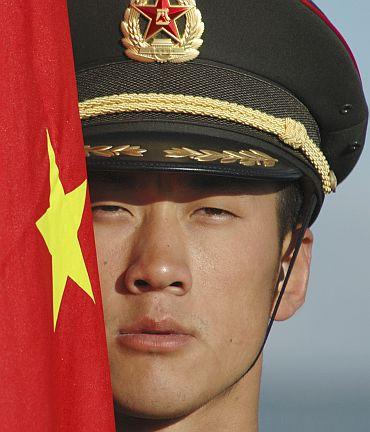
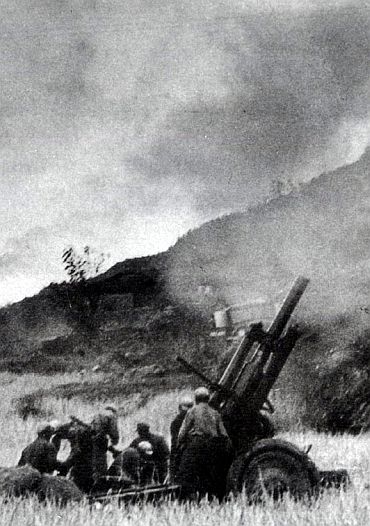
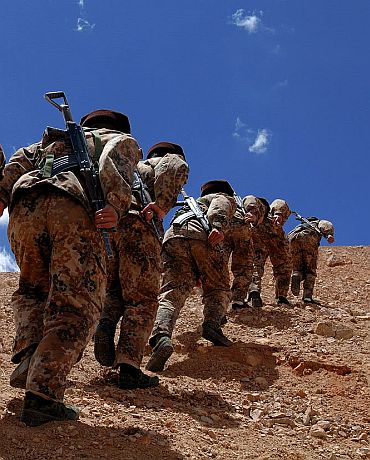
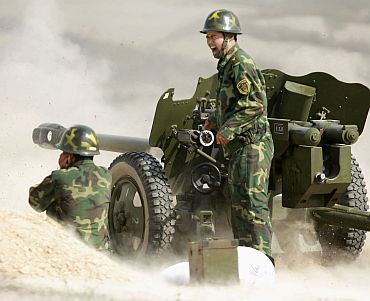
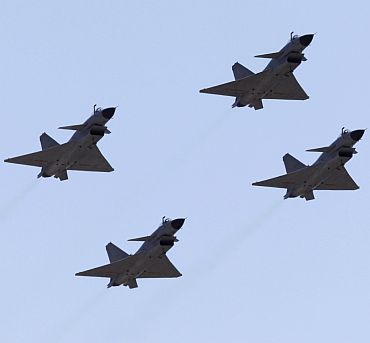
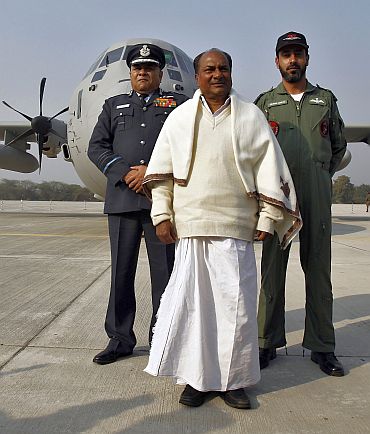
article